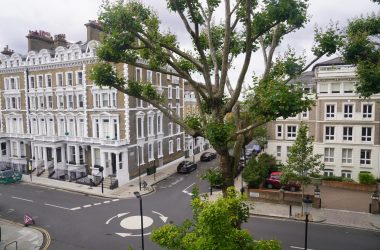Renowned family farm in Perthshire, known for being the only private site in Scotland to successfully reintroduce beavers to the wild, has voiced their disappointment in NatureScot’s lack of leadership. The farm, Argaty, located in central Scotland, has received widespread support from prominent commentators and conservationists on social media for their criticism of NatureScot.
NatureScot, a government agency, recently delayed their decision to grant a license for the reintroduction of beavers in Glen Affric, a move that has been met with controversy. The delay was attributed to concerns from the local community and its representatives.
The license application, which was submitted by fellow government agency Forestry and Land Scotland (FLS) in December 2024, followed two years of extensive local engagement, described by senior NatureScot staff as “exemplary.” The consultations, which also involved leading charity Trees for Life, showed that two-thirds of those involved support the release of beavers on FLS land in Glen Affric.
Tom Bowser, author and owner of Argaty, expressed his thoughts on the delay, stating “something is very wrong at the heart of NatureScot.” He further added, “This cowardly stalling is the latest in a string of examples where the agency has acted against the interests of wildlife and communities.”
Bowser’s family farm has seen the positive impact of beavers on boosting biodiversity and reducing flooding. The farm has become a popular attraction for visitors, including schoolchildren, university groups, celebrities, and politicians, to witness the beavers and their ecological engineering.
“It’s incredibly sad that the people of Glen Affric are being denied the joy that beavers bring,” Bowser said, highlighting Scotland’s status as one of the world’s most nature-depleted countries and the environmental crisis as the greatest threat humankind faces. He believes that NatureScot should be doing everything in their power to encourage the spread of beavers and restore nature.
The BBC Springwatch presenter, Iolo Williams, also expressed his support for Bowser’s words, stating “NatureScot=not fit for purpose.”
Beavers are known to create wetlands that benefit other wildlife, absorb carbon dioxide, purify water, and reduce flooding. They also bring economic benefits to communities through eco-tourism.
Argaty was the first private site in Scotland to legally reintroduce beavers to the wild. In November 2021, a family of beavers, including three kits, was relocated to the farm from arable land in Tayside, where NatureScot had issued beaver-killing licenses to prevent damage. This was a significant moment in Scottish wildlife history, as it was the first time beavers were moved from an unsuitable location to a new part of Scotland. A second family of beavers was relocated to the farm in February 2022.
In his upcoming book, “Waters of Life: Fighting for Scotland’s Beavers,” Tom Bowser describes the challenges and difficulties faced in the beaver relocations, including bureaucratic resistance from NatureScot officials and behind-the-scenes maneuverings by representatives of landowner lobby groups.
“We have a government policy designed to grow our small beaver population by translocating these biodiversity-boosting animals to new parts of Scotland. Repeated surveys show that most Scots wish this to happen,” Bowser stated. “We have the world’s most thorough official guidance, leading applicants through how to attempt such wildlife relocations.”
He believes that NatureScot’s behavior is “stranger still” given that Strathglass, where the proposal’s opponents reside, already has an established beaver population. He questions the agency’s leadership and its ability to assist the spread of beavers and allow them to help fight biodiversity loss and climate breakdown.
Argaty, a family farm that produces food in an environmentally sensitive manner while providing a home for nature, is also a popular visitor attraction, including an award-winning red kite project.
Tom Bowser’s book, “A Sky Full of Kites: A Rewilding Story,” and the forthcoming “Waters of Life: Fighting for Scotland’s Beavers,” further highlight the importance of coexistence with wildlife and the need for an agency that champions and defends nature, even if it means standing up to political pressures.





